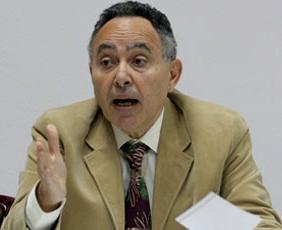By BAHEY ELDIN HASSAN
The Middle East, as we have known it for more than a century, is about to disappear and a new model is in the making. The features of its new face are not being drawn by colonialists and traditional Arab powers, but by the chaos from today’s power vacuum.
The central governments of at least five Arab countries — Syria, Iraq, Libya, Sudan and Yemen — have lost control over large parts of their territories to armed opposition groups. A mix of civil, sectarian or racial wars is plaguing these nations, and there are few signs the conflicts will abate. The 15-year-old global world war on terror has largely failed, and terror groups have reclaimed the initiative.
Al Qaeda has a stronghold in Yemen, while ISIS has established its hold over parts of Syria and Iraq, and a “State of Sinai” in Egypt. It also controls the city of Derna in Libya, has established a transcontinental alliance with Boko Haram in Nigeria, and is carrying out its plan for extending attacks to European cities and on American soil, where two militants were killed recently after an attempted terror attack in Texas.
As a result of the violence and despair throughout the region, the Mediterranean Sea has become the world’s largest cemetery. In less than four months, 1,700 asylum seekers, fleeing civil wars, dire economic conditions and systematic repression, have perished in the sea. This number is 30 times greater than in the same period last year. Nearly four million refugees have fled the civil war in Syria, according to the United Nations High Commissioner for Refugees.
Such horrific suffering is the result of decades of severe social injustices, Islamic extremism, sweeping human rights violations and the absence of good governance. The countries that have most suffered from decades of systematic political, sectarian and racial repression and mass killings — Iraq and Syria — made possible the foundation of ISIS.
In this context, people of the Arab region have a hard time answering the question: What represents “true Islam?” Is it ISIS, which uploads videos of its beheadings on YouTube, or Saudi Arabia which beheads people in public? Is it ISIS, which uses “Islamic law” to justify the mass rape of non-Muslim women in Iraq, or is it the Sunni government of Sudan, which uses mass rape of non-Arab women as a tactic of war?
Is it ISIS, which advocates the mass killing of non-Muslim minorities; the Alawite government of Bashar al-Assad, which has gassed Sunni cities in Syria; or the government of Abdel Fattah el-Sisi, which executes mass killing on Egypt’s streets and issues mass death sentences through its politicized courts?
King Abdullah II of Jordan told CNN recently that his intelligence services saw ISIS forming almost two years ago in the northern city of Raqqa, but “the Syrian regime was hitting everybody else, but not ISIS. … They needed to get somebody out there that’s worse.”
In other words, with ISIS committing atrocities, the Syrians’ barrel bombs and use of gas on civilians did not look so bad. The king failed to say that this mimics the strategy of some Arab governments, which attack political opponents, both secular and Islamist, who might win support. Terror attacks are viewed by some Arab governments not as threats, but rather as opportunities to buy the acquiescence of their citizens and the silence of the international community regarding their human rights crimes. These governments enact draconian terrorism laws, laws that are used to target peaceful liberals, Islamic dissidents and human rights defenders. Egypt is the most striking example of this approach.
It is time for Arab leaders to listen to the moral and rational voices of their citizens. On the eve of the Arab Summit two months ago, 26 Arab human rights organizations submitted a letter to them. They asked the kings and presidents to “reconsider the policies that have led the Arab region to this catastrophic juncture, unprecedented in the modern age,” and “to devise an effective strategy based on lessons learned from the unilateral focus on security and military solutions.”
What makes the region’s situation more dire is the world’s failure to condemn this oppression, turning a blind eye to the roots of radicalization.
It is no longer about a choice between countering terrorism and respecting human rights. It is impossible to win the fight against terror in this region without addressing the oppression and lack of opportunity that spawns it. Defending human rights and confronting religious extremism, working to end the discrimination against Syrian and Iraqi Sunni populations, as well as against Bedouins of Sinai, are the first steps in a journey of a thousand kilometers.
The New York times: http://nytweekly.com/columns/
Share this Post

